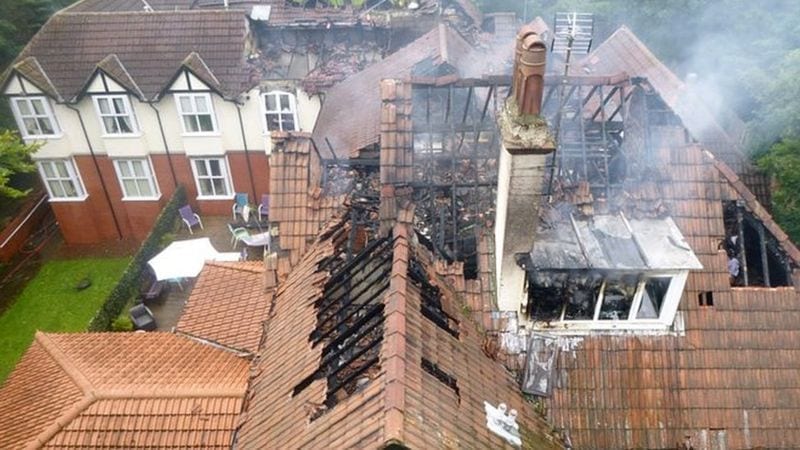The past few months have been exceptionally difficult for care homes across the UK. The disruption and distress caused by Covid-19 in residential accommodation for vulnerable individuals has been significant. The battle to keep the virus out of these environments has been extraordinarily demanding and stressful for the people responsible for running them. It’s likely that in some instances many of the more routine activities, such as servicing fire detection and prevention equipment and security systems, will have slipped down the priority list. But pandemic or not, fire and security risks do not go away.
Fire and crime incidents continue to occur in care home environments
For example, in June a fire broke out in the roof of a Sunderland care home and spread rapidly. The majority of residents were evacuated but seven remained inside and needed to be rescued by fire fighters. Fortunately there were no serious injuries but six people had to be taken to hospital. That month also saw a care home fire in the Teesside area. One resident had to be rescued and given first aid. The following month there was another care home fire, this time in Hereford. Care homes continue to be a target for criminals too; a burglary at a Manchester care home in June led to the heartbreaking loss of wedding rings and the ashes of a resident’s late husband.
Failing to maintain equipment that’s designed to save lives and protect people and their property can have upsetting and potentially devastating consequences in many ways for vulnerable people, and not just within the confines of where they live. An Aberdeen company was fined £80,000 this summer for its failure to maintain emergency lighting that illuminated a fire escape stairwell at an indoor market. Very sadly, that failure led to the death of a vulnerable gentleman who had gone missing from his sheltered accommodation.
It’s essential everything possible continues to be done to reduce risk
That includes making sure all fire detection and prevention and security equipment and systems operate correctly. Ensuring the safety and security of vulnerable residents is complex and residential homes are demanding environments to manage in this respect. That makes it even more essential that the equipment installed for their protection is fully functioning.
Fire alarm systems must be accurate and reliable, providing staff with the maximum amount of time possible to respond and initiate evacuation if necessary. Visual alarms must be capable of ensuring hard of hearing or deaf residents are alerted to an emergency situation. Fire fighting equipment like fire extinguishers must be maintained in accordance with their schedules so they can be relied on to work properly. And systems like CCTV, intruder alarm, access control and nurse call must all be properly serviced as well to ensure they are operating correctly. While in-house checks and tests remain an important part of overall maintenance of all these systems and equipment, they are not sufficient on their own. Full servicing must be done within the specified time period by competent and qualified personnel to ensure reliability and compliance.
Don’t forget about passive fire protection equipment
Maintenance of equipment extends to passive fire protection too. That includes fire doors. Only last year, the role that fire doors play in care homes was the subject of research that highlighted a worrying lack of understanding of what fire doors do.
The survey of around 1,000 current and former care home employees highlighted a range of misconceptions with nearly half admitting they didn’t realise the role fire doors had in slowing the spread of fire. A staggering 82% admitted they regularly kept fire doors open. One in five didn’t appreciate the significance of the gap around the door. Nearly three quarters had seen fire doors being tampered with including closers being removed so they would open more easily. Fire door safety week takes place between the 21st and 27th September this year, and is a reminder to make sure fire doors, and other forms of passive fire protection, are correctly maintained too so they can continue to fulfil their role.
Do you need some assistance?
As we all continue to adapt to operating within the new normal, you might be thinking about ensuring your care home’s fire and security systems and equipment servicing schedules are up to date. If you need support with achieving this, please do get in touch with us.
